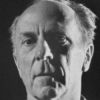Edward Weston

Edward Weston
Edward Henry Westonwas a 20th-century American photographer. He has been called "one of the most innovative and influential American photographers…" and "one of the masters of 20th century photography." Over the course of his 40-year career Weston photographed an increasingly expansive set of subjects, including landscapes, still lifes, nudes, portraits, genre scenes and even whimsical parodies. It is said that he developed a "quintessentially American, and specially Californian, approach to modern photography" because of his focus on the people and...
NationalityAmerican
ProfessionPhotographer
Date of Birth24 March 1888
CityHighland Park, IL
CountryUnited States of America
A lifetime can well be spent correcting and improving one's own faults without bothering about others.
It's hard not to tell the truth with a camera. Artists are particularly good at that.
An excellent conception can be quite obscured by faulty technical execution or clarified by faultless technique.
No photographer is better than the simplest of cameras
I always work better when I do not reason, when no question of right or wrong enter in,-when my pulse quickens to the form before me without hesitation nor calculation.
To see the Thing itself is essential: the quintessence revealed direct without the fog of impressionism... This then: to photograph a rock, have it look like a rock, but be more than a rock. Significant presentation - not interpretation.
A photograph has no value unless it looks exactly like a photograph and nothing else.
...through this photographic eye you will be able to look out on a new light-world, a world for the most part uncharted and unexplored, a world that lies waiting to be discovered and revealed.
I find myself every so often looking at my ground glass as though the unrecorded image might escape me!
People who wouldn't think of taking a sieve to the well to draw water fail to see the folly in taking a camera to make a painting.
I was extravagant in the matter of cameras - anything photographic - I had to have the best. But that was to further my work. In most things I have gone along with the plainest - or without.
If I am interested, amazed, stimulated to work, that is sufficient reason to thank the gods, and go ahead!
Restricting too personal, and therefore prejudiced, interpretation leads to revolution - the fusion of an inner and outer reality derived from the wholeness of life - sublimating things seen into things known.
When money enters in - then, for a price, I become a liar - and a good one I can be whether with pencil or subtle lighting or viewpoint. I hate it all, but so do I support not only my family, but my own work.